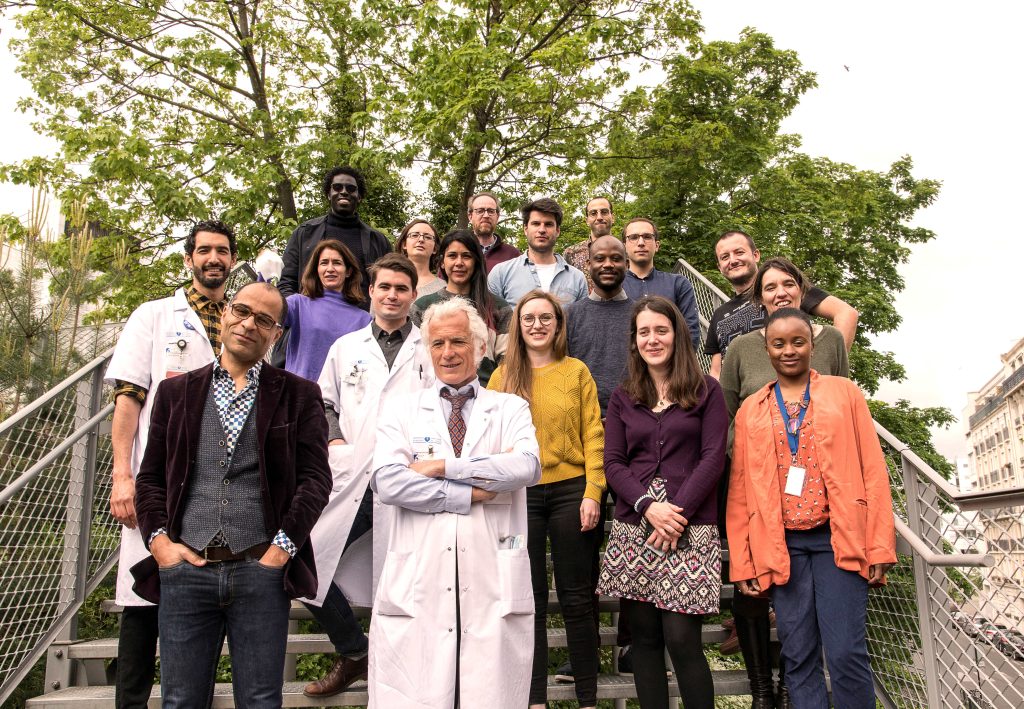



The main focus of our research is the epidemiology of cardiovascular disease (CVD) at the population level. More specifically, we are addressing the epidemiology of sudden cardiac death, the predictive value of novel biomarkers, the relevance of new preventative strategies such as primordial prevention, and the epidemiological transition towards non-communicable disease (NCDs) in Africa throughout a research program on global health. We are coordinating large population-based study cohorts, registries and field studies. We are also strongly anchored in National, European and International research networks including from the global south. This is a 40-staff multidisciplinary team composed of epidemiologists and clinical researchers of different specialties, permitting to meet these different challenges. We are combining classical regression analyses with multidimensional analyses using sophisticated machine learning methods. Our main approach is to work at the population level because given the size of the target, this is where efficient and safe preventive approaches may be the most impactful. We are trying to provide scientifically based robust methods and results that are implementable in real life.
Our team is essentially funded by National and European academic grants such as the National Research Agency (ANR), Horizon Europe, COST Action, but also by non-profit Foundations such as the Medical Research Foundation (FRM), French Society of Cardiology or French Foundation of Cardiology.

Thanks to a collaboration with the firefighters and the mobile emergency teams, we have been able to establish 10 years ago a population-based registry of SCD in the Paris area (Sudden Death Expertise Centre). Its specificity is to collect data in the pre-hospital, intra-hospital and after hospital discharge settings, giving an integrative view of the epidemiology and care of SCD. In parallel, we are developing an ambitious project using AI technics to develop and validate individuals from the general population who are at increased risk for SCD.
We are currently developing an ambitious and risky project evaluating the predictive value of vascular aging biomarkers measured non-invasively by high-precision carotid echotracking in more than 10,000 participants from the Paris Prospective Study III (PPS3). In addition to ‘classical’ vascular aging biomarkers, we have started a program on radiomics analyzing the raw signal from the carotid echotracking. This program is developed in collaboration with researchers from team 12 (P Boutouyrie and RM Bruno). Thanks to its large biobank, PPS3 also serves as a research platform for the PARCC and we have several ongoing collaborations with PARCC teams on genetics and novel blood biomarkers.
Primordial prevention is a new preventative strategy aiming to prevent the onset of risk factors in the first place to achieve an optimal cardiovascular health (CVH) and ultimately prevent the occurrence of CVD (and beyond). Over the last 5 years, we have conducted several works demonstrating how higher CVH was associated with substantially lower risk of CVD in different settings. We have also shown how higher CVH was related to lower risk of several chronic diseases such as T2D, dementia, depression or cancer, permitting to envisage a unified preventative approach. We are now addressing (i) the relevance of primordial prevention in childhood and (ii) implementation of primordial prevention in real life (randomized intervention).
In collaboration with researchers and clinicians from 20 different Sub-Saharian countries, the African Research Network (ARN, http://www.africa-research.net), under the impulsion of X Jouven (France) and B Diop (Senegal) is being conducting works to address the onset of NCDs such as CVD, T2D, obesity, which are becoming highly prevalent, with the so-called epidemiological transition. A cluster of excellence between Université de Paris Cité and Université Cheick Anta Diop has been ranked first by the European Commision (The Guilde). In parallel, the team is engaged in the European Circle U alliance (https://www.circle-u.eu) aiming to educate the next European generation on 3 main domains including Global Health. JP Empana is coordinating the knowledge hub on Global Health and with his co-chairs, they are developing international teaching activities, building international research networks with academic and non-academic stakeholders including from the global south, and spreading the importance of global health as a research topic towards different stakeholders worldwide.
We formed with A Loupy, and O Aubert and C Lefaucheur an AVENIR team dedicated to solid organ transplantation and rejection, which became Team 11 under the direction of A Loupy. We keep robust collaborations between the 2 teams particularly around cardiac transplantation and cardiovascular complications of renal graft rejections.